Complete NZ Property Development Investor's Guide
 By
Trent Bradley
·
5 minute read
By
Trent Bradley
·
5 minute read

Property development is one of the most dynamic and potentially rewarding sectors of the New Zealand real estate market. Whether you're a first-time investor or an experienced developer, understanding the fundamentals of property development is crucial for making informed decisions and maximising your investment potential.
Table of Contents:
- Understanding Property Development
- Types of Property Development in New Zealand
- The Development Process
- Financial Considerations
- Regulatory Environment in New Zealand
- Getting Started in Property Development
- The Role of Specialist Financing
- Key Takeaways
- Frequently Asked Questions
- The Role of Specialist Financing
Understanding Property Development
Property development involves the process of transforming raw land or existing properties into more valuable real estate assets. This can range from simple renovations and improvements to complex multi-stage projects involving subdivision, construction, and infrastructure development.
In New Zealand, property development encompasses several key activities:
Land Acquisition and Analysis: Identifying suitable properties with development potential, conducting feasibility studies, and assessing market demand in specific locations.
Planning and Consenting: Working with local councils to obtain necessary resource consents, building permits, and ensuring compliance with district plans and zoning regulations.
Design and Construction: Collaborating with architects, engineers, and builders to create developments that meet market needs while maximising return on investment.
Infrastructure Development: Installing or upgrading essential services such as water, sewerage, electricity, and roading to support new developments.
Marketing and Sales: Bringing finished products to market through effective marketing strategies and sales processes.
Types of Property Development in New Zealand
Property development takes many forms across New Zealand's diverse market:
Residential Development: Creating new housing stock through subdivision, townhouse developments, apartment complexes, or standalone homes. This remains the most common form of development, driven by New Zealand's ongoing housing shortage.
Commercial Development: Developing office buildings, retail spaces, industrial facilities, and mixed-use developments that combine residential and commercial elements.
Subdivision Projects: Dividing larger properties into multiple lots, often including the installation of new infrastructure and services. This is particularly popular in growing urban areas and lifestyle blocks.
Renovation and Intensification: Upgrading existing properties or increasing density through additions, conversions, or comprehensive redevelopment of underutilised sites.
The Development Process
Successful property development follows a structured approach that typically includes several phases:
The initial phase involves market research and site selection, where developers identify opportunities based on demographic trends, infrastructure development, and local market conditions. This is followed by detailed feasibility analysis, including cost estimation, timeline planning, and financial modelling.
Once a viable project is identified, developers work through the consenting process, which can be complex and time-consuming in New Zealand. This involves engaging with council planners, preparing detailed plans, and often consulting with community groups and neighbours.
The construction phase requires careful project management, quality control, and regular communication with contractors and suppliers. Finally, the marketing and sales phase brings the completed development to market.
Development Types Comparison
| Development Type | Typical Timeline | Capital Required | Experience Level |
|---|---|---|---|
| Simple Subdivision | 6-12 months | $150,000-$400,000 | Beginner-Friendly |
| Townhouse Development | 12-18 months | $400,000-$1,000,000 | Intermediate |
| Apartment Complex | 18-36 months | $1,000,000+ | Advanced |
| Renovation Projects | 3-9 months | $50,000-$300,000 | Beginner-Friendly |
Financial Considerations
Property development requires significant capital investment and carries inherent risks alongside potential rewards. Developers must consider land acquisition costs, development expenses, holding costs during construction, and marketing expenses.
Financing options vary considerably depending on project scale and developer experience. Many developers use a combination of equity investment, bank financing, and sometimes private lending to fund their projects. Understanding cash flow requirements and having adequate contingency funding is essential for project success.
Regulatory Environment in New Zealand
New Zealand's regulatory framework for property development continues to evolve. Recent changes to the Resource Management Act, introduction of the National Policy Statement on Urban Development, and various housing-related legislation have created both opportunities and challenges for developers.
Local council requirements vary significantly across different regions, making local knowledge and expertise valuable for successful development projects. Environmental considerations, heritage protection, and infrastructure capacity are all important factors that can impact development feasibility and timelines.
Getting Started in Property Development
For those considering property development, starting with smaller projects can provide valuable experience while limiting initial risk exposure. Many successful developers begin with simple subdivision projects or minor residential developments before progressing to larger, more complex projects.
Working with experienced professionals is crucial for success. This includes engaging qualified mortgage brokers who understand development finance, experienced solicitors familiar with property law, and accountants who can structure projects tax-effectively.
Key Takeaways
- Property development transforms raw land or existing properties into more valuable assets through subdivision, construction, renovation, and infrastructure improvements
- Development projects require structured phases including market research, consenting, construction, and marketing, with each stage demanding careful planning and execution
- New Zealand's regulatory environment varies significantly by region, with recent legislative changes creating both opportunities and compliance requirements for developers
- Successful development requires significant capital investment using a mix of equity, bank financing, and private lending, with adequate contingency funding essential for managing risks
- Starting with smaller projects like simple subdivisions provides valuable experience while limiting risk exposure before progressing to larger, more complex developments
- Specialist development finance offers flexible solutions including staged funding releases, interest-only periods during construction, and structures that accommodate unique project cash flows
Frequently Asked Questions
What is the difference between property development and property investment?
Property development involves actively transforming properties through construction, subdivision, or renovation to create value, whereas property investment typically focuses on purchasing existing properties to generate rental income or capital growth. Development requires more active management, carries higher risk, but offers potentially greater returns through value creation rather than market appreciation alone.
How much capital do I need to start a property development project in New Zealand?
Capital requirements vary significantly based on project scope, but developers typically need 20-30% equity for the total project cost, including land purchase and development expenses. Small subdivision projects might require $150,000-$300,000 in equity, while larger residential developments could need $500,000 or more. Working with specialist development finance brokers helps structure funding to minimise upfront capital requirements.
How long does the consenting process take for property development in New Zealand?
Consenting timeframes vary considerably depending on project complexity and local council processes. Simple subdivisions might achieve consent in 3-6 months, while complex developments can take 12-24 months or longer. Resource consent applications require 20 working days for initial processing, though this extends significantly if further information is requested or public notification is required.
What are the biggest risks in property development?
Key risks include cost overruns from unexpected site conditions or construction issues, delays in consenting or construction affecting holding costs, market changes reducing demand or sale prices, and inadequate cash flow management. Successful developers mitigate these risks through thorough due diligence, maintaining contingency funds (typically 10-15% of project costs), and working with experienced professional teams.
Do I need previous experience to start property development?
While previous experience is beneficial, it's not essential to start development projects. Many successful developers begin with smaller projects like basic subdivisions or minor renovations to gain experience. Surrounding yourself with experienced professionals including development finance brokers, solicitors, architects, and project managers helps compensate for limited personal experience and significantly improves project success rates.
How is development finance different from a standard mortgage?
Development finance is specifically structured for construction and development projects, featuring staged funding releases aligned with project milestones rather than a single advance. These facilities typically offer interest-only payments during construction, higher leverage ratios, and shorter terms (12-24 months). Development lenders assess projects based on end value rather than current value, and require detailed feasibility assessments before approval.
The Role of Specialist Financing
Property development projects often require flexible financing solutions that traditional mortgage products cannot provide. Development finance typically involves staged funding releases aligned with project milestones, interest-only periods during construction, and loan structures that accommodate the unique cash flow patterns of development projects.
At Luminate Finance, we understand the complexities of development financing and work with developers to structure appropriate funding solutions that support project success while managing risk effectively.
Looking Forward
Property development will continue to play a crucial role in addressing New Zealand's housing needs and supporting economic growth. Understanding market trends, regulatory changes, and financing options positions developers to identify and capitalise on emerging opportunities.
Whether you're exploring your first development opportunity or expanding an existing portfolio, having the right team of advisors and appropriate financing in place is essential for turning development concepts into successful, profitable projects.
Ready to explore property development opportunities? Contact Luminate Finance today to discuss how our specialist development finance solutions can support your next project.

Trent Bradley
Trent Bradley is a New Zealand financial advisor specializing in property-backed finance and investment consulting. With over 26 years of experience running his mortgage broking business, he has helped wholesale investors access high-yield property-backed loan opportunities. For the past 12 years, Trent has led Luminate Finance, a New Zealand finance company dedicated to connecting investors with secure property investment solutions.


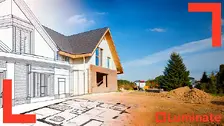



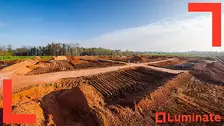



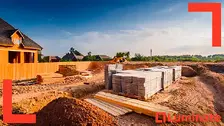
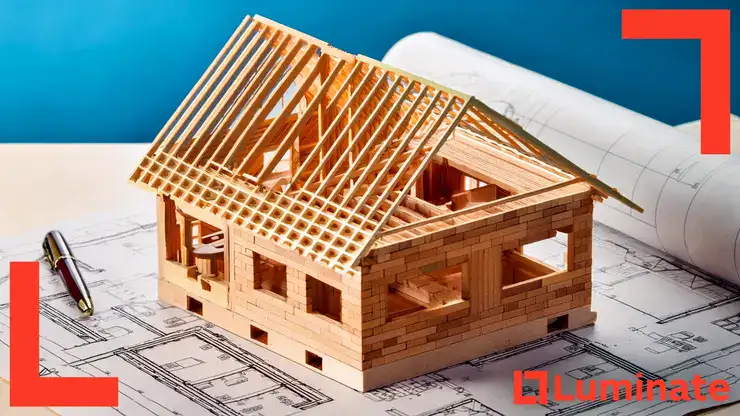







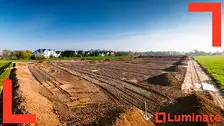
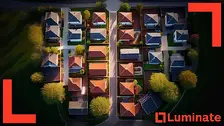







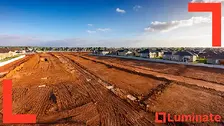
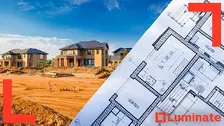
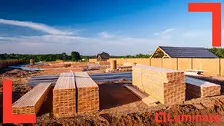



.png?//48413319.fs1.hubspotusercontent-ap1.net/hubfs/48413319/Featured%20images%20(14).png&width=247&height=126&name=Featured%20images%20(14).png)



